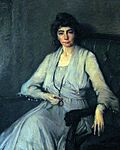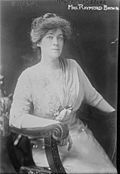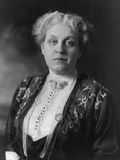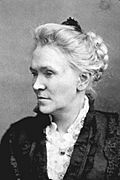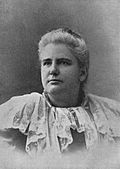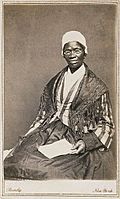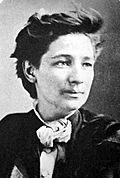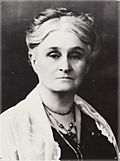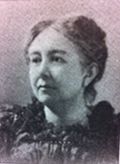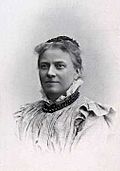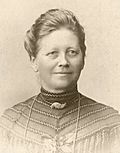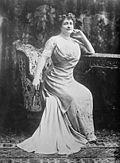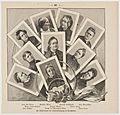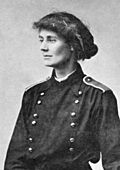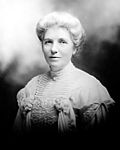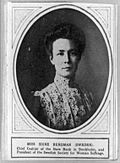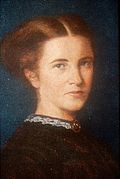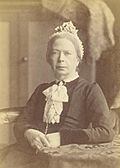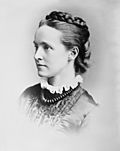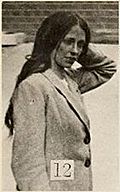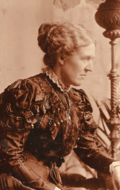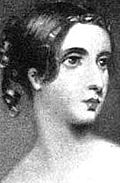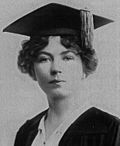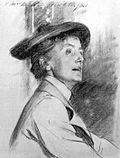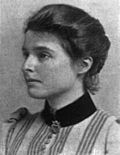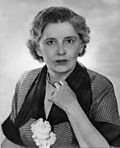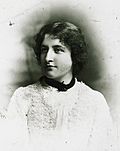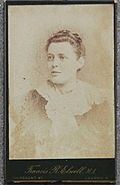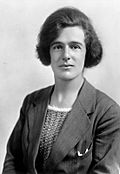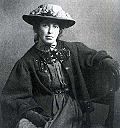List of suffragists and suffragettes facts for kids
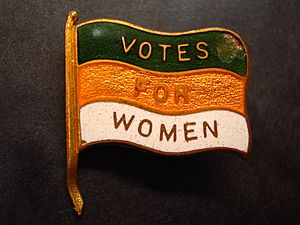
This article is about the amazing people who fought for women's right to vote. These brave individuals, called suffragists and suffragettes, worked all over the world to make sure women could have a say in their governments.
Suffragists and suffragettes used different ways to achieve their goals. In the UK, "suffragette" often meant a more active campaigner. They sometimes used strong actions to get attention. In the United States, suffragettes often organized peaceful events. These included long walks, big parades like the Woman Suffrage Procession of 1913, and silent protests called the Silent Sentinels. Their main goal was to win the right for women to vote, which is also known as women's suffrage.
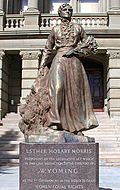
Contents
- Fighting for the Right to Vote
- Argentina's Pioneers
- Australia's Early Advocates
- Canada's Campaigners
- Denmark's Determined Women
- France's Feminist Voices
- Germany's Women's Movement
- Ireland's Advocates
- Japan's Suffrage Leaders
- New Zealand's Trailblazers
- Norway's Path to Equality
- Portugal's Pioneers
- Sweden's Suffrage Movement
- Switzerland's Long Road
- United Kingdom's Suffragettes
- United States' Long Struggle
- Major Organizations for Women's Suffrage
- See also
Fighting for the Right to Vote
Many people around the world believed that women should have the same voting rights as men. They formed groups and held events to make their voices heard. Here are some of the key figures and organizations from different countries.
Argentina's Pioneers
In Argentina, several women played a big part in the suffrage movement.
- Cecilia Grierson (1859–1934) was Argentina's first woman doctor. She strongly supported women's freedom, including their right to vote.
- Julieta Lanteri (1873–1932) was a doctor and activist. She was the very first woman to vote in Argentina.
- Eva Perón (1919–1952), as the First Lady, helped create the nation's first large political party for women.
Australia's Early Advocates
Australia was one of the first places where women gained the right to vote. Many dedicated women worked hard for this.
- Edith Cowan (1861–1932) was a social campaigner. She became the first woman elected to an Australian parliament.
- Vida Goldstein (1869–1949) was a feminist politician. She was the first woman in the British Empire to run for election to a national parliament.
- Louisa Lawson (1848–1920) was a writer and publisher. She was a strong feminist who worked for women's rights.
- Mary Lee (1821–1909) was a leading suffragist and social reformer in South Australia.
Canada's Campaigners
Canadian women also fought for their voting rights.
- Edith Archibald (1854–1936) led several women's organizations. She worked to advance women's rights across Canada.
- Henrietta Muir Edwards (1849–1931) was a women's rights activist. She was one of "The Famous Five" who helped define women as "persons" under the law.
- Nellie McClung (1873–1951) was a politician and author. She was a key member of "The Famous Five."
- Emily Stowe (1831–1903) was a doctor. She campaigned for Canada's first medical college for women.
Denmark's Determined Women
Danish women also organized to gain their voting rights.
- Matilde Bajer (1840–1934) was a women's rights activist and pacifist.
- Eline Hansen (1859–1919) helped start the Dansk Kvinderaad, a major women's organization.
- Line Luplau (1823–1891) co-founded and chaired the Danske Kvindeforeningers Valgretsforbund, a suffrage union.
France's Feminist Voices
French women also had strong advocates for their right to vote.
- Hubertine Auclert (1848–1914) was a leading feminist campaigner.
- Marguerite Durand (1864–1936) was a journalist and actress. She founded her own newspaper to support women's rights.
- Olympe de Gouges (1748–1793) was a playwright and political activist. She wrote about women's rights during the French Revolution.
Germany's Women's Movement
In Germany, many women worked to improve women's lives and gain suffrage.
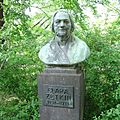
- Anita Augspurg (1857–1943) was a jurist, actress, and pacifist. She was a strong suffragist.
- Helene Lange (1848–1930) was an educator. She was a pioneering women's rights activist and suffragist.
- Clara Zetkin (1857–1933) was a Marxist theorist and politician. She was very active in women's rights and suffrage.
Ireland's Advocates
Irish women also fought for their right to vote and for independence.
- Louie Bennett (1870–1956) was a suffragette and trade unionist.
- Anna Haslam (1829–1922) founded the Dublin Women's Suffrage Association.
- Constance Markievicz (1868–1927) was a politician and revolutionary. She was a prominent suffragette.
- Hanna Sheehy-Skeffington (1877–1946) was a founder of the Irish Women's Franchise League.
Japan's Suffrage Leaders
In Japan, women also began to organize for their voting rights.
- Raicho Hiratsuka (1886–1971) was a writer and activist.
- Fusae Ichikawa (1893–1981) founded Japan's first women's suffrage organization. It was called the Women's Suffrage League of Japan.
New Zealand's Trailblazers
New Zealand was the first self-governing country to grant women the right to vote in 1893.
- Amey Daldy (1829–1920) was a major leader and recruiter for the cause.
- Meri Mangakāhia (1868–1920) was a Māori campaigner for women's suffrage.
- Mary Müller (1819/1820?–1901) is known as "New Zealand's pioneer suffragist." She wrote many pamphlets.
- Kate Sheppard (1848–1934) was a key figure. She led the petition campaigns that won women the vote. She is even on the New Zealand ten-dollar note.
Norway's Path to Equality
Norwegian women also worked hard to achieve their voting rights.
- Randi Blehr (1851–1928) was a co-founder and chairperson of the Norwegian Association for Women's Rights.
- Gina Krog (1847–1916) was another co-founder of the Norwegian Association for Women's Rights.
Portugal's Pioneers
Portugal had its own champions for women's suffrage.
- Carolina Beatriz Ângelo (1878–1911) was a physician. She was the first woman to vote in Portugal.
- Ana de Castro Osório (1872–1935) was a political feminist and suffragist.
Sweden's Suffrage Movement
Swedish women also organized to gain their political rights.
- Fredrika Bremer (1801–1865) was a famous novelist. She was an early women's rights activist.
- Signe Bergman (1869–1960) co-founded and chaired the National Association for Women's Suffrage.
- Elin Wägner (1882–1949) was a strong campaigner for the National Association for Women's Suffrage.
Switzerland's Long Road
Switzerland was one of the last European countries to grant women the right to vote.
- Marthe Gosteli (1917–2017) was a Swiss suffrage activist. She created the Swiss archive of women's history.
- Emilie Lieberherr (1924–2011) was a leading figure in the final struggle for women's suffrage in Switzerland. She led a famous march to Bern in 1969.
United Kingdom's Suffragettes
The UK had a very active and well-known suffrage movement.
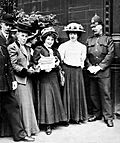
- Elizabeth Garrett Anderson (1836–1917) was a physician and feminist. She was the first woman mayor in Britain.
- Lydia Becker (1827–1890) was a biologist and astronomer. She founded and published the Women's Suffrage Journal.
- Emily Wilding Davison (1872–1913) was a militant activist. She was a key member of the Women's Social and Political Union.
- Millicent Fawcett (1847–1929) was a feminist and writer. She led the National Union of Women's Suffrage Societies.
- Emmeline Pankhurst (1858–1928) was a main founder and leader of the British Suffragette Movement. Her daughters, Christabel Pankhurst (1880–1958) and Sylvia Pankhurst (1882–1960), were also very active campaigners.
- Sophia Duleep Singh (1876–1948) played leading roles in the Women's Tax Resistance League. She was also active in the Women's Social and Political Union.
United States' Long Struggle
The fight for women's suffrage in the United States was a long and important one.
- Susan B. Anthony (1820–1906) was a co-founder and leader of the National Woman Suffrage Association. The Nineteenth Amendment to the United States Constitution, which gave women the right to vote, is often called the Susan B. Anthony Amendment.
- Ida B. Wells-Barnett (1862–1931) was an African-American journalist and suffragist. She was an early leader in the civil rights movement.
- Carrie Chapman Catt (1859–1947) was president of the National American Woman Suffrage Association. She also founded the League of Women Voters.
- Matilda Joslyn Gage (1826–1898) was an activist and author.
- Helen Keller (1880–1968) was a famous author and political activist. She also supported women's suffrage.
- Esther Hobart Morris (1814–1902) was the first female Justice of the Peace in the United States.
- Alice Paul (1885–1977) was a key leader of the Women's Voting Rights Movement. She founded the National Woman's Party and organized the Silent Sentinels protests.
- Elizabeth Cady Stanton (1815–1902) started the Seneca Falls Convention. She wrote the Declaration of Sentiments and was a major pioneer of women's rights in America.
- Lucy Stone (1818–1893) was a powerful speaker and abolitionist. She was a main force behind the American Woman Suffrage Association.
- Sojourner Truth (c. 1797–1883) was an abolitionist and women's rights activist. She gave the famous "Ain't I a Woman?" speech.
- Victoria Woodhull (1838–1927) was a women's rights activist. She was the first woman to speak before a committee of Congress.
Major Organizations for Women's Suffrage
Many groups were formed to help women gain the right to vote. These organizations played a huge role in the movement.
- American Woman Suffrage Association: This US group was formed in 1869.
- Congressional Union: A more radical US group formed in 1913. It later became the National Woman's Party.
- International Alliance of Women: Founded in 1904, this group worked to promote women's suffrage around the world.
- National American Woman Suffrage Association (NAWSA): This was a very large US organization formed in 1890.
- National Woman's Party: A major US organization founded in 1915. They organized the Silent Sentinels protests outside the White House.
- Women's Christian Temperance Union: This group was active in the suffrage movement, especially in the US and New Zealand.
- Women's Social and Political Union: A major suffrage organization in the United Kingdom, known for its strong actions.
See also
 In Spanish: Anexo:Sufragistas y suffragettes para niños
In Spanish: Anexo:Sufragistas y suffragettes para niños
 | Delilah Pierce |
 | Gordon Parks |
 | Augusta Savage |
 | Charles Ethan Porter |


